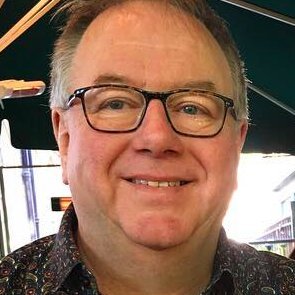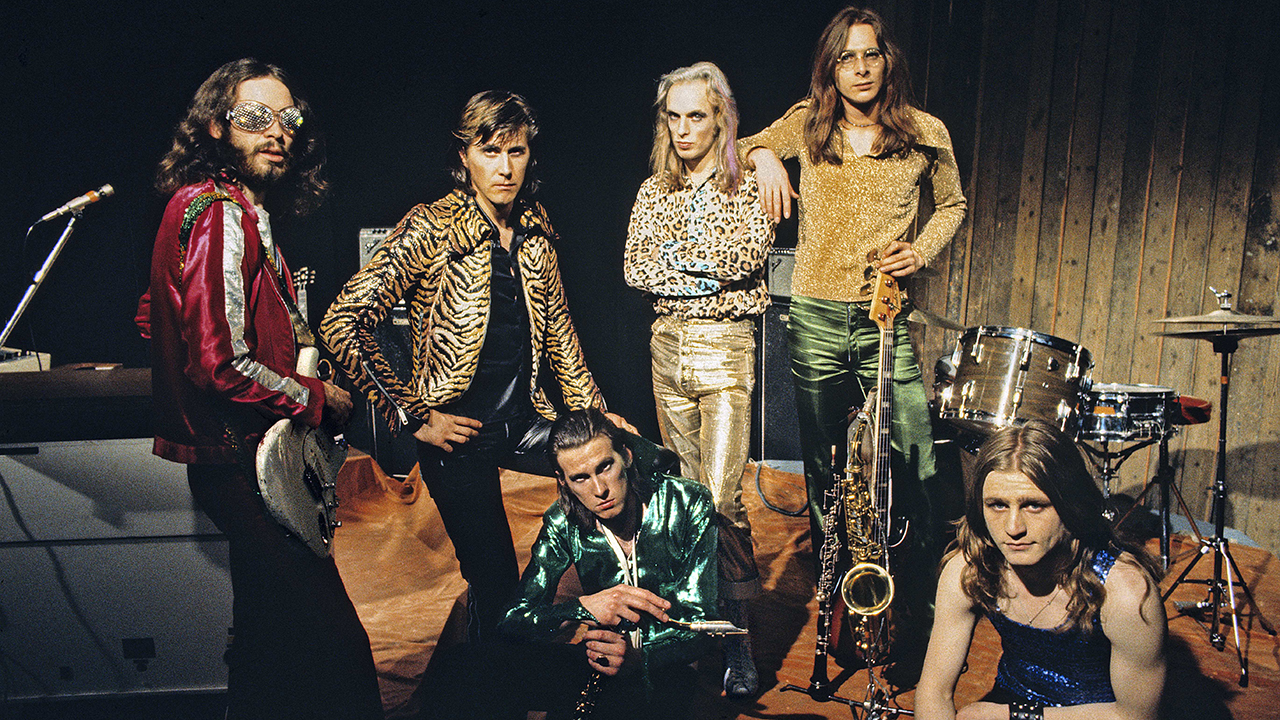“Marrying a rock band to an orchestra was seat-of-the-pants stuff." The story of Barclay James Harvest's Once Again
1971's Once Again album. only the band's second album, saw Oldham's prog quartet Barclay James Harvest working with an orchestra to striking effect
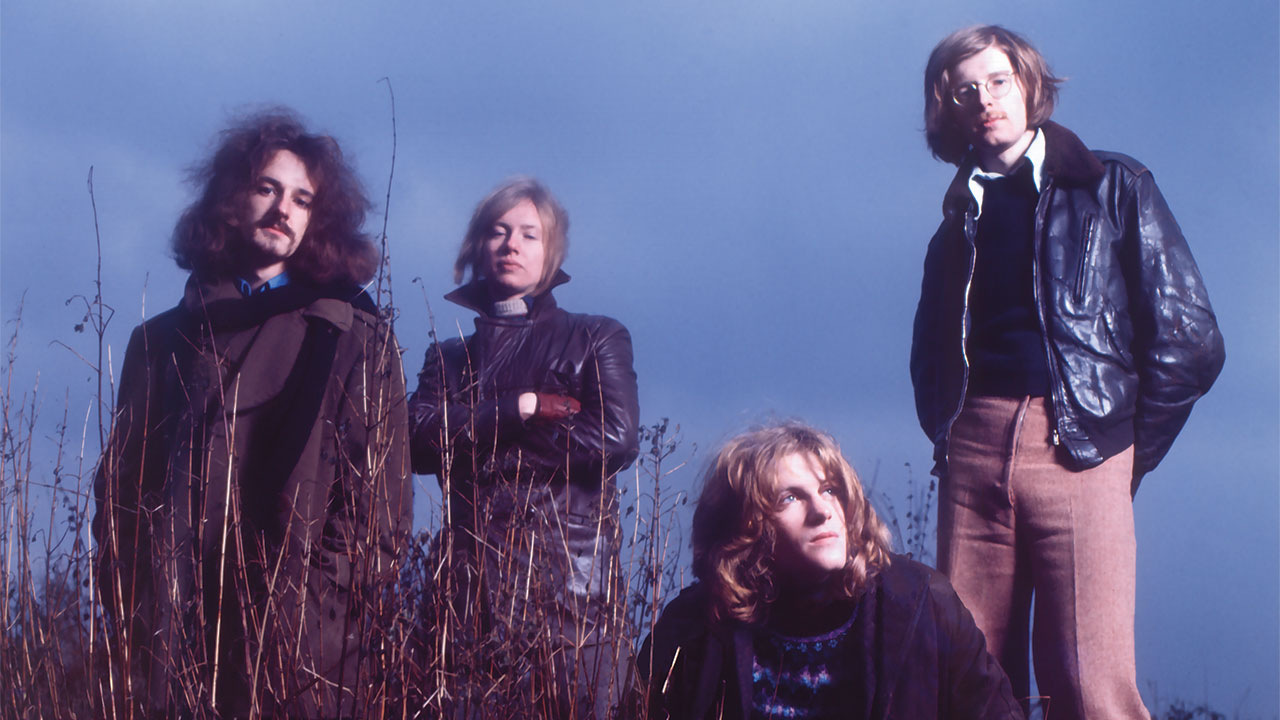
In 1970, Barclay James Harvest caught the critics’ attention when they experimented with rock and orchestra on their bold self-titled debut. Half a century later, in 2023, John Lees‘ Barclay James Harvest were preparing for their final live shows before the bandleader retires, Lees discussed the band’s incredible career and the tracks that made up their recently reissued second album, Once Again.
"The last time we played with an orchestra was in Athens five years ago,” says Barclay James Harvest guitarist and vocalist John Lees. “We played at the Odeon of Herodes Atticus, an amphitheatre on the slopes beneath the Acropolis. It was fantastic. Standing there on stage looking up at the Acropolis in spotlight in front of an orchestra was quite surreal.”
Although Barclay James Harvest might not have been the most flash and virtuosic of progressive rock bands, they were certainly one of the most ambitious and broke new ground, in early 1971, by touring with an orchestra. And, as their Acropolis concert demonstrated, they can still do rock and grandeur like no other group. But the road to Athens has been a long, and at times difficult, journey.
They formed in 1967 in the Oldham area and early on played at Middle Earth and with Pink Floyd at All Saints Hall, London. They established a melodic style with blues and folk elements and attracted a sponsor and manager, a local fashion entrepreneur John Crowther. They moved into one of his properties, Preston House, an 18th-century farmhouse in nearby Diggle. If that sounds like a cool way to ‘get it together in the country’, the facilities were, if not quite 18th-century, then certainly primitive.
Barclay James Harvest – Lees, Les Holroyd on bass and vocals, Stuart ‘Woolly’ Wolstenholme on keyboards and vocals, and Mel Pritchard on drums – signed a one-off single deal with Parlophone and released a single, Early Morning, in April 1968. The group had already experimented with cello, tenor horn, flute and recorder and although they didn’t have the budget for strings, they had been impressed by The Moody Blues’ use of the Mellotron and hired one for the recording from a piano shop in Derby.
“We were the first and only people to actually rent the thing,” says Lees. “The guy didn’t want it back, so we got it at a knockdown price. And that was the start of introducing orchestral strings as part of the palette. We had some other songs which lent themselves to that kind of sound picture, and from then on it became synonymous with what we did.”
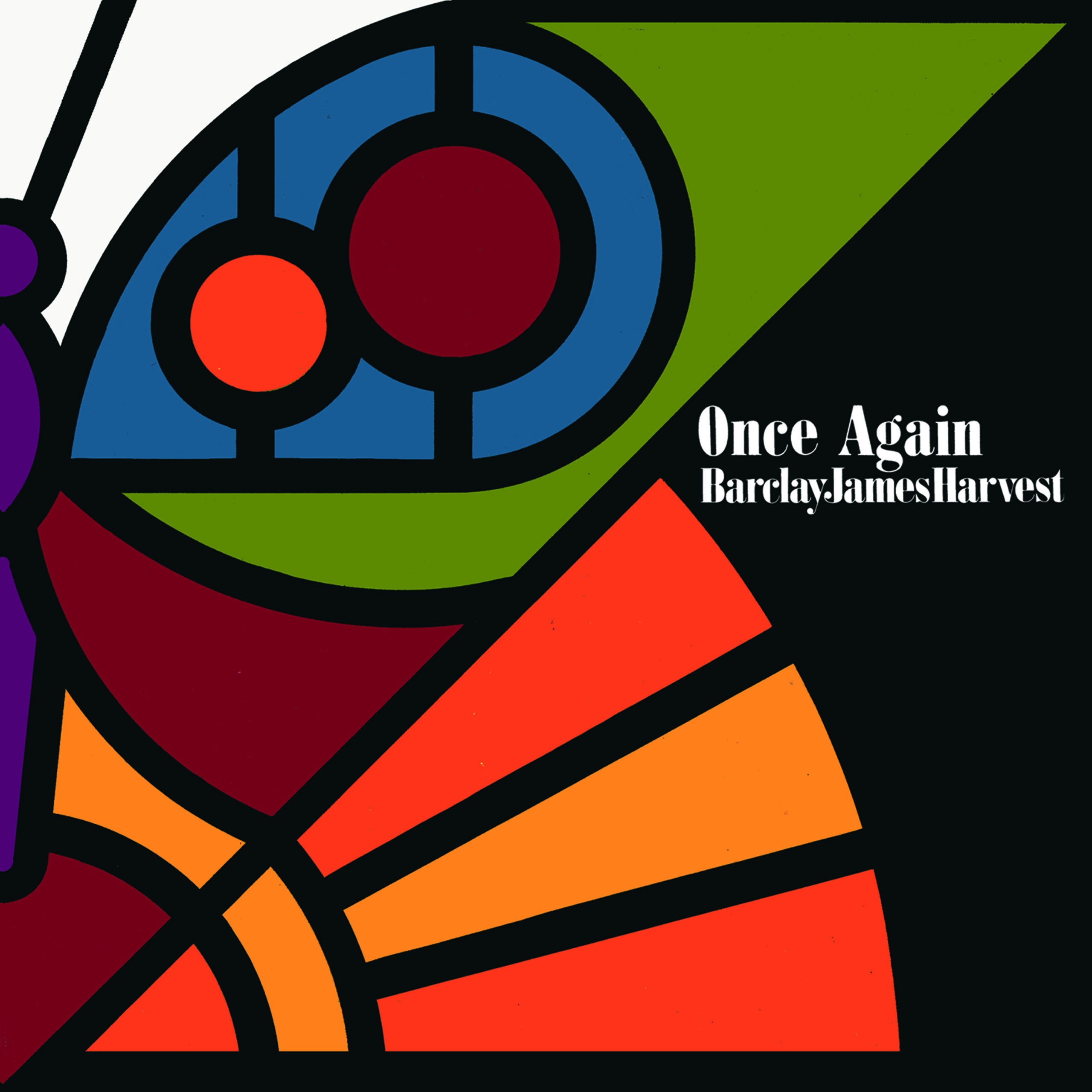
In 1969 Barclay James Harvest signed to EMI’s new progressive and underground subsidiary Harvest Records. They were one of the label’s first bands and donated a part of their name in the process. Like The Moody Blues on their 1967 album Days Of Future Passed, they wanted to use both Mellotron and orchestra, but whereas Peter Knight’s orchestral passages were largely standalone pieces, they sought a more integrated sound.
Sign up below to get the latest from Prog, plus exclusive special offers, direct to your inbox!
The group’s agency Blackhill Enterprises put forward a young arranger, Robert John Godfrey, who was keen to work with them. He became known as their Resident Musical Director – literally, as he had moved into Preston House. By this time, Lees had had enough of the “squalid” conditions there and moved out.
Godfrey was responsible for the orchestration on their 1970 debut album Barclay James Harvest – except Mother Dear, which was arranged by producer Norman Smith, who told Godfrey what he had written was “too bizarre”. Godfrey has called Smith’s arrangement “completely awful” and claims that unlike some string arrangers, he “knows how classical music works”. On Dark Now My Sky, based on the ominous environmental warnings in Rachel Carson’s book Silent Spring, his arrangement is particularly intricate and expansive.
The orchestra on the album – credited as Barclay James Harvest Orchestra – were actually a London-based student orchestra. “Marrying a rock band to an orchestra was seat-of-the-pants stuff,” says Lees. “In some instances, the orchestra goes out of time. And you’d have thought that we would have had some leeway with the students, but everything was done according to rule books, so even if we had to have extra rehearsals because they weren’t playing it right, they charged us.”
In 1971 the band and orchestra went on tour with Godfrey conducting. “It was financially a disaster,” Lees recalls. “It’s not that the concerts weren’t well attended, but there was no profit in it, it was all paying to play. You couldn’t charge ticket prices to make the money to pay the expenses that were incurred. And the further we played from London, the smaller the orchestra became due to costs.”
Both Crowther and the band ended up in debt, but for 1971’s Once Again, Barclay James Harvest decided to carry on with orchestration on some songs, and they also signposted where they were heading in a rock direction.
Much is made of prog’s supposed relationship with JRR Tolkien’s The Lord Of The Rings, but very few tracks actually reference it. Lees’ sweetly sung, folky ballad Galadriel is one. “I’d read Lord Of The Rings, but the song is not specifically about Galadriel, the character in the book,” says Lees. “It’s just a general kind of a love song.” Ever keen to avoid generic pop orchestration, Godfrey embellishes its simple structure with busy string parts, high brass and timpani rolls, which he identifies as like Benjamin Britten. Norman Smith had gone to the gear store at Abbey Road and pulled out a famous guitar for Lees to play on this track, the Epiphone Casino that John Lennon had used on the Apple rooftop concert a couple of years earlier.
Mocking Bird, originally written by Lees in 1968, remains one of Barclay James Harvest’s best-loved songs. Godfrey’s orchestrations on the album are particularly inventive but dense and complex, and at times feel at odds with the vocal lines. Does Lees agree?
“Well, over the years, I’ve just got very used to it,” he replies. “We play our version of Mocking Bird live with the Mellotron and strings so it’s become a different beast by now. But some of the orchestration, like Dark Now My Sky, is well heavy, isn’t it?”
It was to be Godfrey’s last album with the group; he went on to form The Enid in 1973. Personal frictions and a dispute over the extent of his contribution to Mocking Bird and other songs culminated in an unhappy exit. This was followed years later by lengthy and unsuccessful litigation.
Song For Dying is a powerful anti-war song, lamenting the loss of our sons in conflict and showcases a tougher band sound thanks to its impassioned vocals, Lee’s searing lead guitar, Holroyd’s animated bass lines and Pritchard’s dynamic drumming.
The acoustic Vanessa Simmons is an affectionate look back to a former love: ‘Vanessa Simmons, funny kind of name,’ Lees sings. Here the group’s harmonies are reminiscent of Crosby Stills And Nash. “Yeah, it was West Coast inspired,” Lees admits. “We did have a good harmony, the three of us. We have very similar accents and voices that just sit together really easily.”
Ball And Chain is a tough bluesy rocker topped by Wolstenholme’s rather overcooked vocals. “It was a bit of a spoof and was meant to be a take on Led Zeppelin,” Lees recalls, laughing. “He had this paper cup and was using it like a megaphone in front of the microphone. It was hilarious.”
Less fun is Wolstenholme’s Happy Old World: a grim, ironically titled song, with the protagonist’s threat to die by suicide. It’s inadvisable to be too literal when linking a song’s message with the singer, but Wolstenholme lived with depression and took his own life in 2010. How does Lees look back on it now?
“That was probably written when we first started, when we were sending demos to publishers,” says Lees. “That’s the way he was at that time. He had that tongue-in-cheek, very dry humour; not everyone liked it. We were great friends and it was typical of Woolly. In retrospect, some of his later stuff I felt was too dark for Barclay James Harvest.”
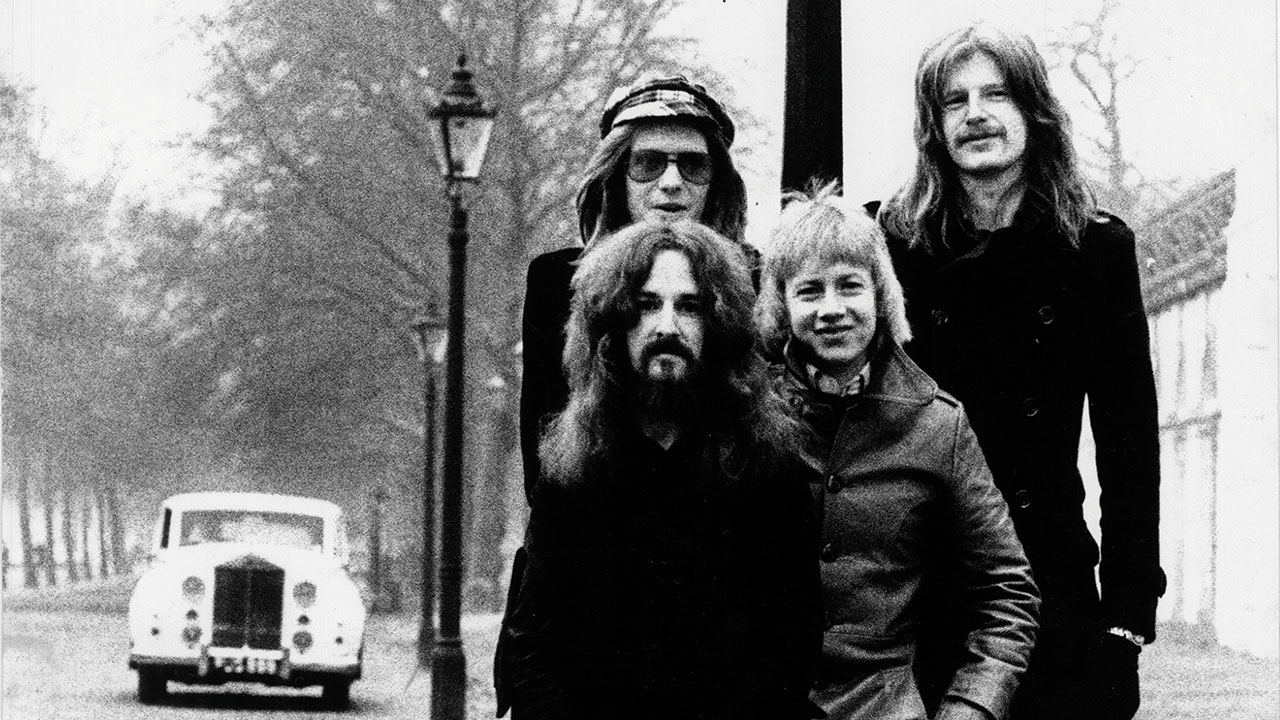
Released at the beginning of this year, the three-CD expanded edition of Once Again includes a remarkable outtake, Wolstenholme’s White Sails (A Seascape). This, the full 12-minute version, is a kind of pocket piano concerto with orchestration by Godfrey and the group notable by their absence. Lees recalls that by this time, Wolstenholme had become a bit detached from the band, “so he would go off and spend this time doing one particular song like White Sails or In Search Of England [from XII]. I was quite happy with that, although not everybody was. But I don’t know why White Sails didn’t make it [on to record] He did a lot of work on that.”
But the pivotal track on the original album is the eight-minute-plus She Said, which introduced the powerful, dynamic 70s BJH rock sound. Written by Wolstenholme and Holroyd, it was originally two songs with folky and rock elements which then morphed into its recorded form. “It was a good live number – still is,” says Lees. Wolstenholme weaves together subtle string and flute Mellotron, and Lees gives his lead guitar lines an extra edge with what became a signature style of playing of two notes together – “split notes”. The song dies down to a ruminative middle section with distant recorder, before surging back up to its conclusion.
And that tune is an early example of the underrated Mel Pritchard’s expansion into a more adventurous drumming style, playing towering snare rolls before launching off – on a wing and a prayer – into lengthy full-kit breaks. It certainly upped the excitement levels. Lees identifies Vanilla Fudge drummer Carmine Appice as a particular influence on Pritchard at this time.
Playing with an orchestra affected Barclay James Harvest in a number of ways. It helped define their identity, and while they have continued sporadically recording and playing live with an orchestra – Martyn Ford took over from Godfrey in late 1971 for …And Other Short Stories – they pragmatically tried to achieve an orchestral effect with a four-piece band, through Mellotron, keyboards and more dramatic playing style. This can be heard on the 1971 Radio 1 In Concert recordings on the expanded Once Again – hosted by DJ John Peel, who particularly enjoyed She Said. The money they lost on their initial orchestral tour had to be recouped, and they toured relentlessly for a couple of years to pay off their debts honing their live show, which was captured in full force on 1974’s Barclay James Harvest Live. It included songs from Once Again and ended up giving the band their first Top 40 album.
Barclay James Harvest are currently on their last-ever tour, but intend to keep on recording and playing one-off concerts “at festivals or special events”, which may well involve an orchestra. “Up to the time we split with the original BJH [in 1998] we’d done 940 gigs,” says Lees. “I don’t know what the total is now. But when you look back on where we played and how many dates we did in a year, and how long the tours were, it’s quite frightening!”
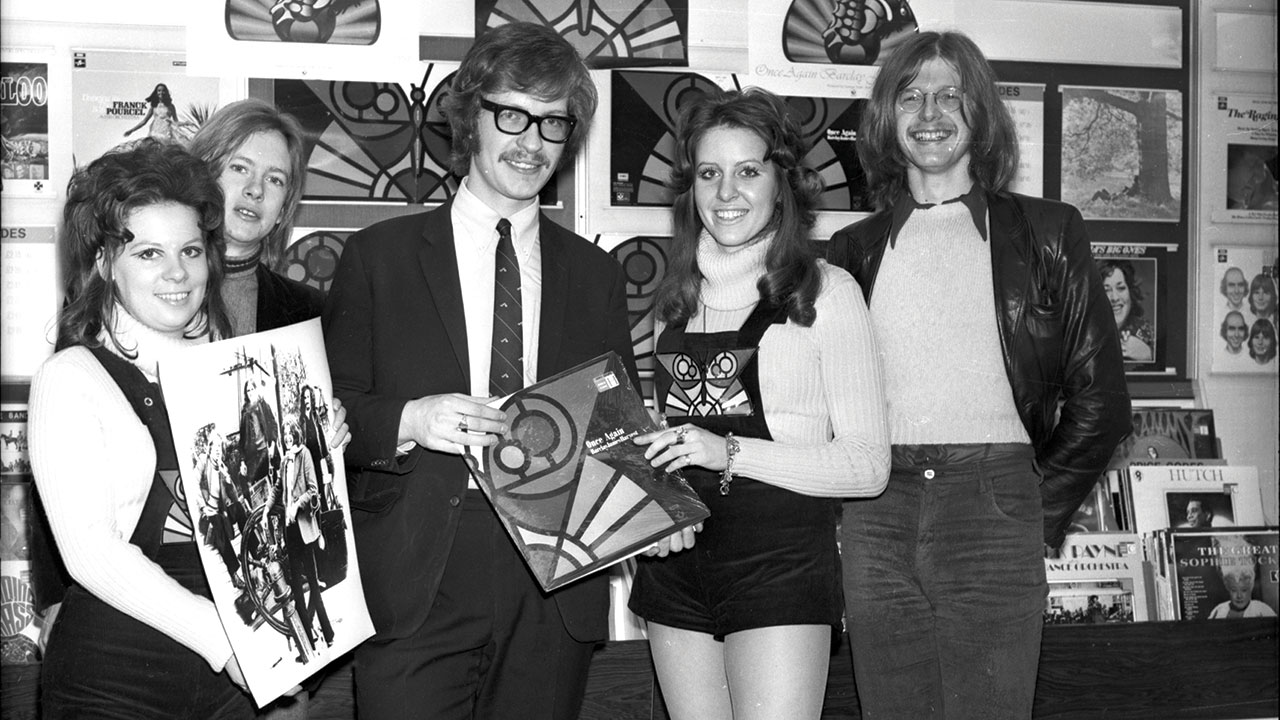
Mike Barnes is the author of Captain Beefheart - The Biography (Omnibus Press, 2011) and A New Day Yesterday: UK Progressive Rock & the 1970s (2020). He was a regular contributor to Select magazine and his work regularly appears in Prog, Mojo and Wire. He also plays the drums.
